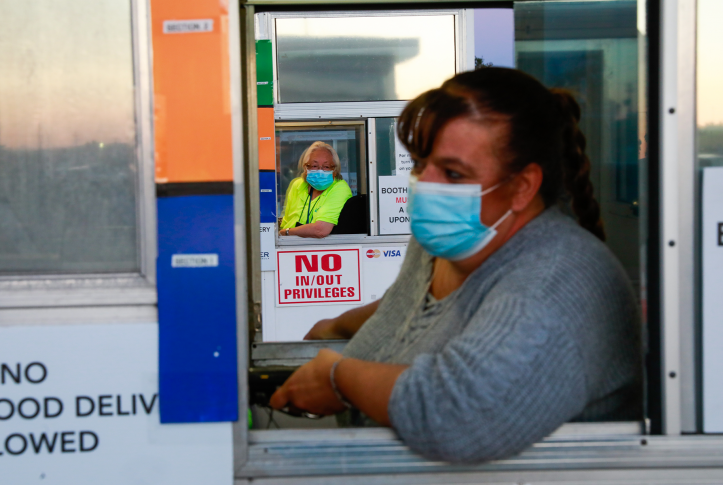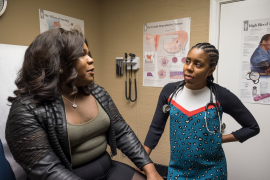The Biden administration has begun the process of withdrawing approval for Medicaid work experiments, previously approved by the Trump administration under Section 1115 waivers that allow states to test new approaches in Medicaid. The administration has sent lengthy and detailed letters to states, including Arkansas and New Hampshire, documenting the risks posed by experiments — especially during a pandemic — that compel work as a condition of Medicaid eligibility. As it moves to end approval for work experiments, the Biden administration has asked the U.S. Supreme Court to vacate the court of appeals rulings against the Trump administration for its approval of the Arkansas and New Hampshire experiments and simply send the matter back to the U.S. Department of Health and Human Services (HHS) for further action. Nevertheless, the Court continues to hold onto the work experiment cases now pending before it, which raise the question of whether such experiments are legal in the first place. The Court appears to be taking a wait-and-see approach, as Arkansas continues to defend the legality of an experiment that imposes work as a condition of Medicaid eligibility. The state legislature is considering a replacement approach that would penalize people for not working but not strip them of Medicaid entirely.
The administration’s withdrawal follows an earlier letter sent to states with work experiments on February 12, letting officials know of its intention to review all approvals to determine whether they satisfy the requirements of a 1115 waiver being “likely to assist in promoting the objectives” of Medicaid. New Hampshire did not respond to the initial notification. Arkansas objected, arguing that early termination of an approved 1115 experiment would be unprecedented. It also argued that the Centers for Medicare and Medicaid Services (CMS) had sent a letter on January 4 to states with approved 1115 projects promising nine months advance notice before termination, as well as the right to a lengthy wind-down period. Arkansas claims these protections remain in effect even though the Biden administration also notified states that it was setting the January 4 letter aside as a violation of HHS’s own regulations.
On March 17, with its motion pending before the Supreme Court, the administration formally pulled the trigger. CMS, which oversees the Medicaid experiments, formally notified Arkansas and New Hampshire that it was withdrawing approval of the work experiment and gave each state 30 days to appeal, in accordance with federal rules. These letters are of enormous importance. Under the Administrative Procedure Act, a federal agency is obligated to act in a reasoned fashion and not arbitrarily. The letters provide the evidentiary basis for the reversal.
The letters delve into specifics regarding the significant health care coverage and access risks created by the states’ work experiments. They also discuss the unlikelihood — based on a wealth of research — that either experiment would yield the positive health and economic outcomes touted by the Trump administration when it announced its intention to pursue such experiments in 2018.
The letters place the experiments within the broader context of the COVID-19 pandemic and its aftermath, especially the severe implications for the poor. CMS argues that the gravest public health emergency in a century, along with the health, economic, and social aftermath, creates uniquely dangerous conditions to undertake experiments that put health insurance coverage and access to health care at risk.
But the letters make clear that Medicaid work experiments carry grave risk even in a strong economy. Indeed, Arkansas experienced widespread coverage losses during a period of strong growth. The letters frame CMS’s core concerns, as follows:
Widespread coverage loss or risk of loss. Potential for coverage loss among populations that remain entitled to coverage but lose it because they are unable to understand or navigate the new system of work, reporting, and exemptions. In Arkansas, more than 18,000 beneficiaries had lost coverage by the time the courts stepped in, with disproportionately high losses among the beneficiary population initially targeted for sanctions (i.e., adults ages 30–49) compared to other states and other populations within the state and a related increase in medical debt and financial barriers to care. Coverage losses were especially notable among people with chronic health conditions. Crucially, 97 percent of the affected group already met the work requirements or were exempt. New Hampshire also showed evidence of erroneous, widespread near-term losses among eligible populations.
Flawed assumptions, poor research design, and deficient implementation. Both letters noted the absence of sound outreach, with poorly designed strategies for notifying the affected population, which in turn led to widespread uncertainty and potential for erroneous termination. Neither state could demonstrate the necessary implementation infrastructure or supports that would be essential for compliance. Ultimately, the letters noted, the real problem was the flawed assumption that the poor do not work and that well-paying, year-round jobs with good benefits are plentiful.
It is possible that the Biden termination letters will convince the Court to dismiss the case, especially if Arkansas and the administration reach agreement on a new demonstration that moves away from work restrictions. Yet Arkansas fights on. This may be prompting the Court to keep control over the case despite the fact that at this point — and contrary to the role of federal courts under the Constitution — any decision would be purely advisory, an opinion on whether work experiments are legal in theory even as HHS is terminating them.




